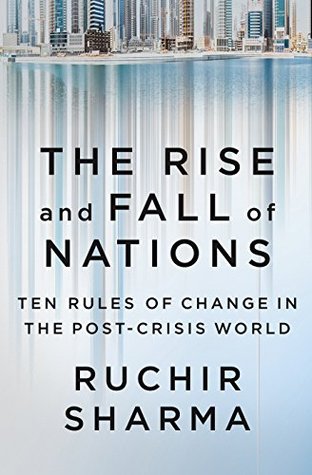More on this book
Community
Kindle Notes & Highlights
Started reading
October 1, 2016
grunt
one of the most widely cited forecasts, the Oxford University researchers Carl Benedikt Frey and Michael Osborne predicted in late 2013 that about 47 percent of U.S. jobs are at risk from automation in the next decade
which is still the single largest employer (of humans) in the United States.
Though U.S. banks have replaced a lot of humans with automated tellers, the savings have allowed them to open up a lot more branches, so that in total the number of human tellers actually increased
One of the new trends is cobots, industrial robots with swing arms safe enough to work alongside and in cooperation with people, rather than inside cages.
I am optimistic on automation in the
workplace because I believe that the laws that govern the economic world are similar to those that govern the physical world, in which nothing is ever lost, nothing is gained, and everything is transformed.
meanderings
Putin the pragmatist had given way to Putin the populist, spending Russia’s savings on giveaways like pension increases, and Putin the nationalist, reasserting Russian power in ways that were provoking fears of a new Cold War.
During the 1970s and ’80s in Indonesia, Suharto engineered rapid growth before his increasing proclivity to favor friends and family sparked the 1998 riots that burned Jakarta and ended his rule. In
In 2011 he let Kudrin go, and the same year Russia’s economy slowed sharply. It is too simple to say these events represent cause and effect, but the end of reform is one reason for the deep and protracted slowdown in Russia’s economy.
Kim Dae-jung of South Korea, Luiz Inácio Lula da Silva of Brazil, Erdoğan in Turkey, and Putin in Russia.
Like the Reagan generation before it, the Kim generation exploited a popular sense of crisis and diminished national status to push reform. I attach Kim Dae-jung’s name to this generation because he was arguably the most impressive change agent in the group. Kim had only a vocational education and hailed from the poor southern provinces long neglected by the northern power center around Seoul. A charismatic populist, he became one of the leading dissidents against South Korea’s authoritarian regimes of the 1970s and ’80s, when he was jailed repeatedly. Kim finally won election at the height of
...more
hyperinflation.
The next worldwide upheaval came in the global financial crisis of 2008. It was the deepest crisis since the 1930s, and any event of that scale was bound to inspire loud demands for change.
This doesn’t mean that leaders don’t matter in rich countries, only that politics matters more in emerging ones, where institutions are weaker and new or aging leaders can have a clearer impact on the economy’s direction and therefore on the mood of the markets.
Narendra Modi is a bit like that—shockingly nuts and bolts in the flesh. So is the president of the Philippines, Noynoy Aquino, whose earthy


